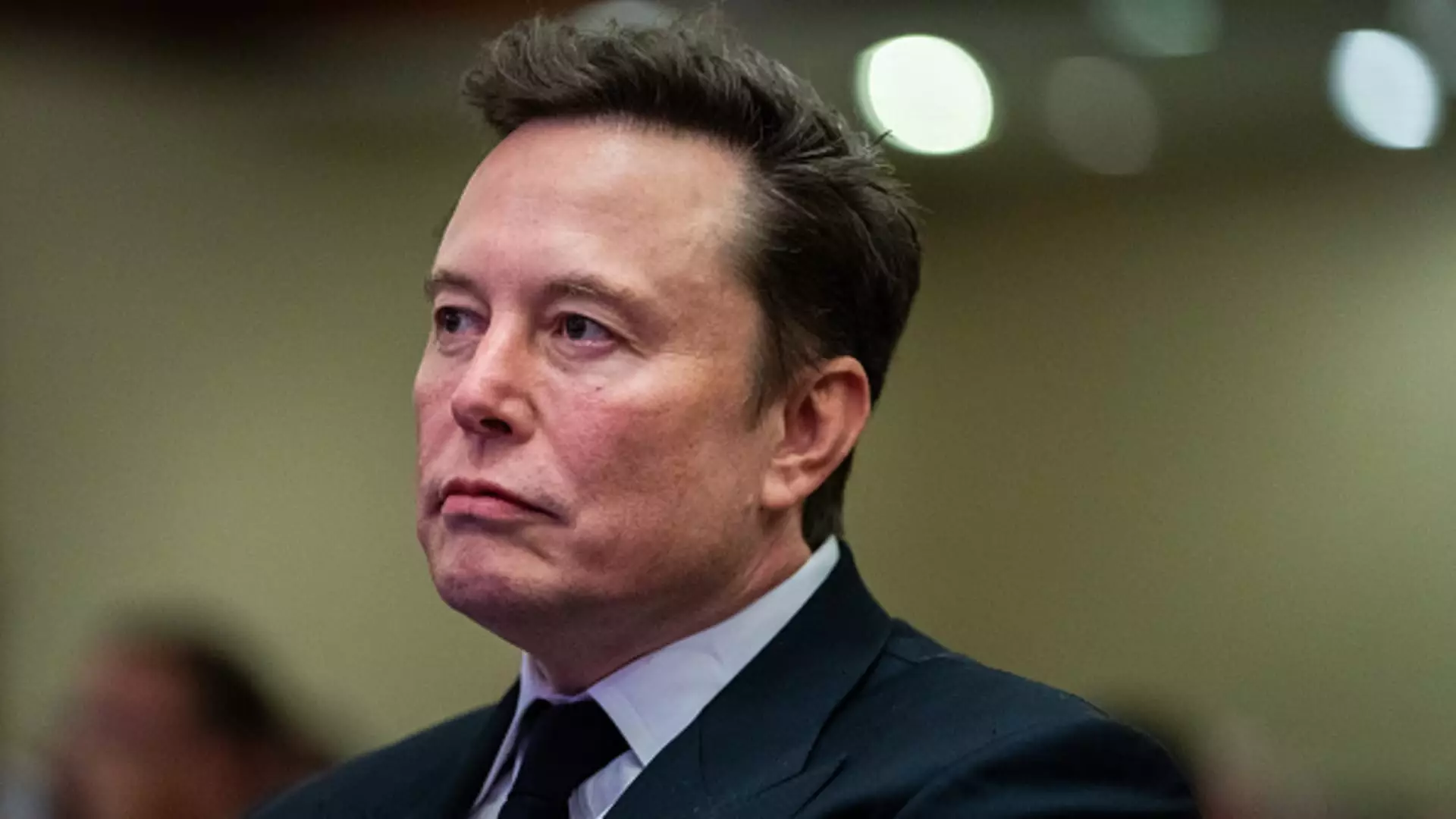In an era where social media platforms hold immense power over free speech and public discourse, the recent tensions surrounding Elon Musk’s social media application, X, have sparked a heated debate. Accusations of censorship from prominent conservative figures following the revocation of their verification badges have ignited concerns regarding the platform’s commitment to free expression, a principle Musk has publicly championed since acquiring Twitter in 2022. This polarization highlights not only the ideological divides in contemporary politics but also the challenges faced by tech companies struggling to navigate these turbulent waters.
The situation unfolded when a minimum of 14 conservative accounts reported losing their blue verification marks on X. This loss has qualified them for various premium features, including monetization through subscriptions and advertisements. Accounts linked to a media organization called ConservativeOG were prominent in these complaints, with representatives voicing their frustrations about feeling stifled and marginalized. The implications of this action reverberate through the conservative community, who view it as a betrayal by Musk—a figure they initially believed would champion their perspectives.
The distinct timing of the events raised eyebrows. Just an hour prior to these reports, Musk had posted a “reminder” on his platform regarding account visibility and engagement. He suggested that accounts frequently muted or blocked would automatically see their reach diminish, a statement that fueled suspicions among his critics who perceived this as an indirect form of censorship. Rather than pacifying those feeling wronged, the post only deepened their outcry regarding the management of conservative voices on the platform.
Musk’s self-identification as a “free-expression advocate” juxtaposes starkly with his critics’ claims that he has initiated a form of shadow banning against right-wing users. Such controversies challenge the integrity of Musk’s rhetoric about open dialogue in the digital space. After all, his initial motives for purchasing Twitter appeared to be rooted in a desire to rectify perceived biases against conservative perspectives. Consequently, the loss of premium features felt by users loyal to the right has led many to re-evaluate their trust in Musk and his commitments.
Preston Parra, head of ConservativeOG, articulated this sentiment by framing X’s recent measures as a “political takedown.” In his view, Musk’s actions reflect a growing hostility towards conservative ideas, particularly around contentious topics such as immigration policy. Such claims gain traction as Parra asserts that Musk is mimicking the very trends he once sought to disrupt. In a polarized society, these points of contention expose the fragile nature of political allegiance, particularly within digital platforms.
At the core of this controversy lies a fervent debate surrounding immigration policy, particularly in the context of burgeoning discussions led by President-elect Donald Trump and his supporters. While anti-immigration factions zealously advocate for a retraction of immigration-friendly policies, pro-immigration figures—including tech magnates like Musk—are increasingly viewed as adversaries. The conflict plays out through social media, showcasing Musk’s complex positioning as a billionaire immigrant navigating the intricacies of America’s political landscape.
The inclusion of Musk and fellow tech investor Vivek Ramaswamy in Trump’s upcoming administration as leaders of a specialized “Department of Government Efficiency” was initially celebrated, yet it now serves as a catalyst for further scrutiny. Many on the far right view them as symbols of the corporate interests that have infiltrated conservative politics, deepening frustrations with tech executives whose backgrounds diverge from populist sentiments.
As these tensions develop, the question remains: what does this mean for the future of conservative discourse on platforms like X? The simple answer is laden with complexity. Conservative users are increasingly vocalizing their dissatisfaction, avowing to resist what they perceive as systemic bias against their viewpoints. This ongoing conflict between established tech giants and vocal political factions will shape the ever-evolving landscape of social media.
The unfolding narrative surrounding Musk and X serves as a microcosm of broader societal divides. With accusations rife and tempers flaring, it is evident that the battle for voice and visibility in the digital realm will not only reflect existing political dynamics but also challenge the nature of free speech itself. As the lines between advocacy, governance, and technology blur, one can only wonder how digital platforms will adapt to the demands of their diverse user bases while upholding the very principles of communication and expression they purport to champion.

